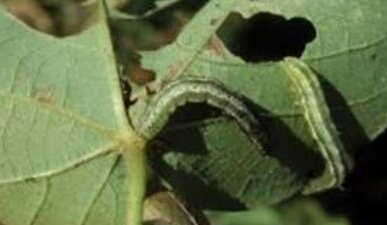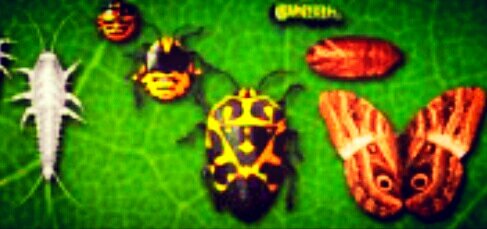Know the insects of plant pests and how insecticides work in eradicating insects

There are three types of pesticides commonly used by farmers to care for their crops: insecticides, herbicides and fungicides. In this post I will only discuss a little about Insecticides.

Insecticides are substances that contain toxic chemical compounds that can kill all types of insects.
Insects are animals of which 26% of the species are human by herbivor or fitofak, while others are harmful to humans because they spread disease in humans and livestock. However, there are also very important insects such as pollinating insects (pol liners), decomposers, predators and parasitoids in other insects, useful ingredients (honeybee), and so on.
The size is very diverse. There is a magnitude of less than 0.25 mm, but some can reach 25 cm. In general, insect body consists of head, chest, and On this chest there are 6 legs that can move.
Insects attack the plants or cattle to obtain food in various ways, according to the type of mouth. Here I am going to explain some of the ways that insects do in eating foods:
Biting and chewing, eg crickets, caterpillars, and grasshoppers. With its mouth this insect can bite and chew the outside of the plant, abort the leaves of plants, make a tunnel hole into it or eat fruit.
Piercing and sucking plant fluids, for example aphis, plant hopper, lice shield, aphids, fruit prick butterfly, and thrips.
Suck, for example butterflies and moths. This animal is not harmful to the extent of being sucked only nectar or honey from the flower. However, most at the adult level become a serious pest.
Chew and lick. Insects of this type of mouth generally do not harm humans, it gives advantages, such as bees.
Suckling and sucking is done by Thrips or mites. Plant tissue is grated with a beak so that the liquid out to suck it. The tissues that are affected by this pest tend to be white and then ground.

One of the difficulties of insect control is the nature of an insect that readily adapts to its surroundings. For example, even if a favorite plant does not exist, the insects still survive by eating whatever types of plants are present. Insects also not only attack crops on farmland, but there are several species that become pest warehouse.
To kill insects, insecticides enter the insect body through the stomach, contact, and breathing apparatus.
Insecticides can poison the stomach (stomach poisons) when insecticides enter the body with the plant part eaten. As a result digestion tool will be disrupted. Insecticides such as these are very effective for controlling insects whose mouths are of type bite and chewers.
Contact insecticide (contact poisons) will enter the body of the insect through the cuticle.
Insecticides enter the body through the breathing. For example, fumigation of pest warehouses can kill pests that suck toxic gas from fumigants.

While seen from the way it works, insecticides are made of physical toxins, protoplasmic toxins, and respiratory toxins.
Physical toxic insecticides will cause dehydration of discharge of body fluids from within the insect body.
Insecticide poison protoplasm can precipitate protein in insect body.
Respiratory toxic insecticides may inhibit the activity of respiratory enzymes.
You got a 2.88% upvote from @nado.bot courtesy of @turkarma!
Send at least 0.1 SBD to participate in bid and get upvote of 0%-100% with full voting power.